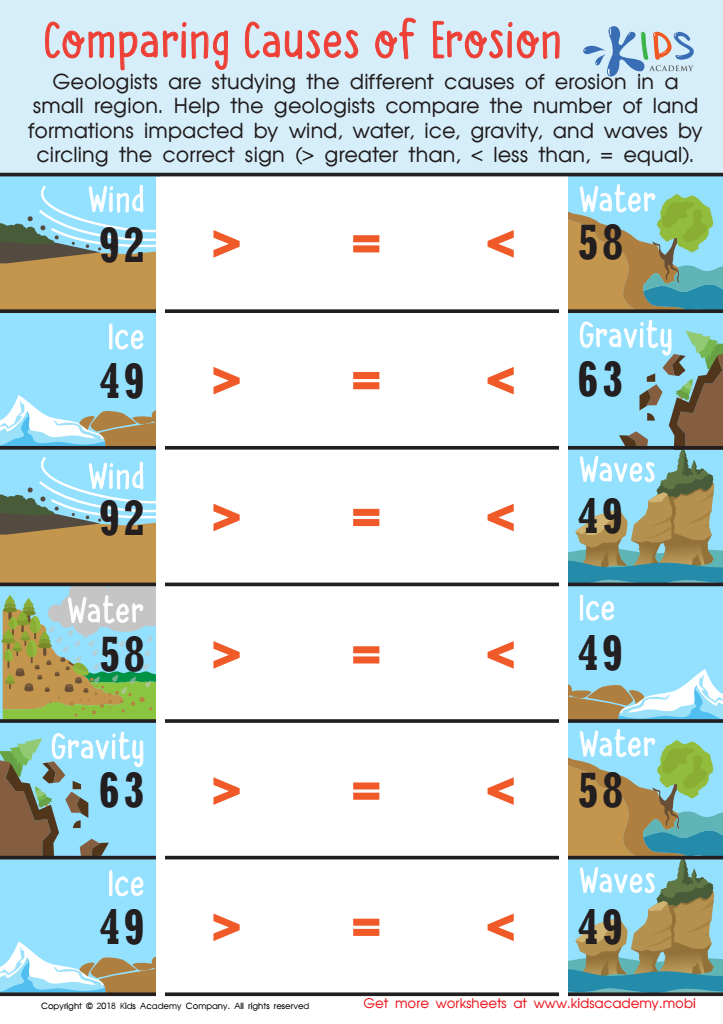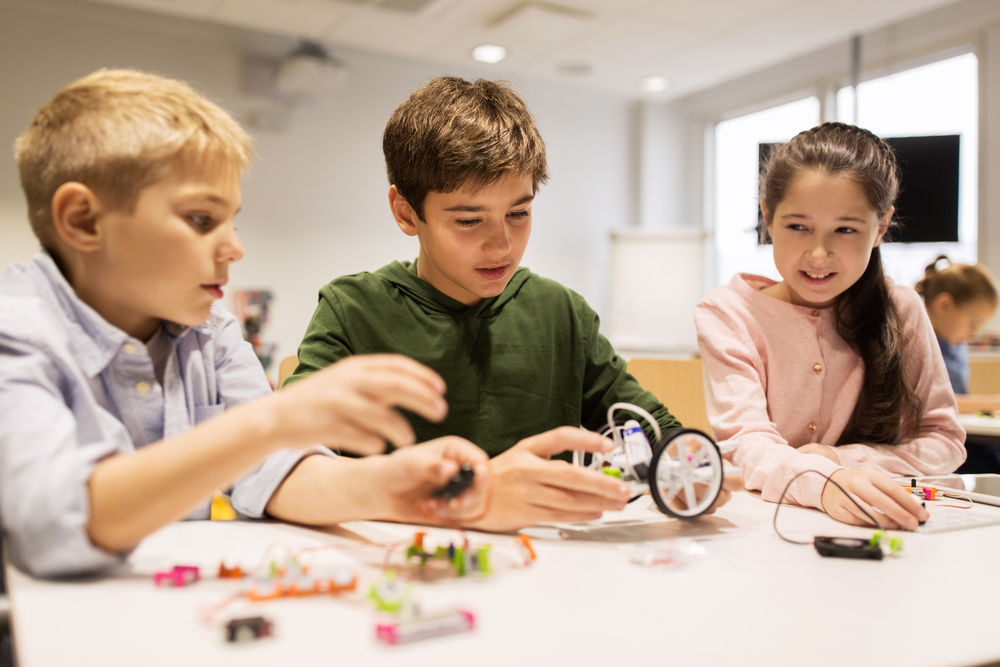Developing observation skills Normal Science Worksheets for Ages 3-7
3 filtered results
-
From - To
Enhance your child's observation skills with our engaging Normal Science Worksheets, designed specifically for ages 3 to 7. These interactive worksheets promote curiosity and critical thinking, helping young learners notice details in their surroundings. With a variety of fun activities, children will practice identifying colors, shapes, and patterns through vivid illustrations and hands-on exercises. Our resources nurture a love for science while developing important cognitive skills. Perfect for home or classroom use, these worksheets encourage exploration and creativity, making learning enjoyable. Equip your little ones with the foundational skills they need for scientific inquiry and discovery! Start observing the world today!


Sink or Float Printable


Comparing Causes of Erosion Worksheet


Light and Sound: Assessment 2 Worksheet
Developing observation skills in young children, particularly in the context of Normal Science, is essential for parents and teachers alike. At ages 3-7, children are naturally curious and eager to explore their environment. Fostering these observation skills enables them to ask questions, make predictions, and find solutions, laying the groundwork for scientific thinking.
As children learn to observe closely, they develop critical thinking and analytical skills, which are important not just in science but across all subjects. This practice cultivates their ability to notice details, recognize patterns, and draw connections — skills that are invaluable for lifelong learning. Enhanced observation encourages children to engage with the world around them, sparking enthusiasm and fostering a habit of inquiry.
Furthermore, observing their environment helps children connect concepts to real-life experiences, reinforcing their understanding of scientific principles. It promotes language development as they practice articulating their observations, thereby enhancing communication skills.
For teachers and parents, supporting the development of these skills means nurturing confident, capable learners who are prepared to tackle future challenges. By investing time in Normal Science activities, adults can instill a sense of wonder and a methodical approach to understanding the world, promoting not only academic success but also a lifetime of curiosity and exploration.
 Assign to My Students
Assign to My Students



















